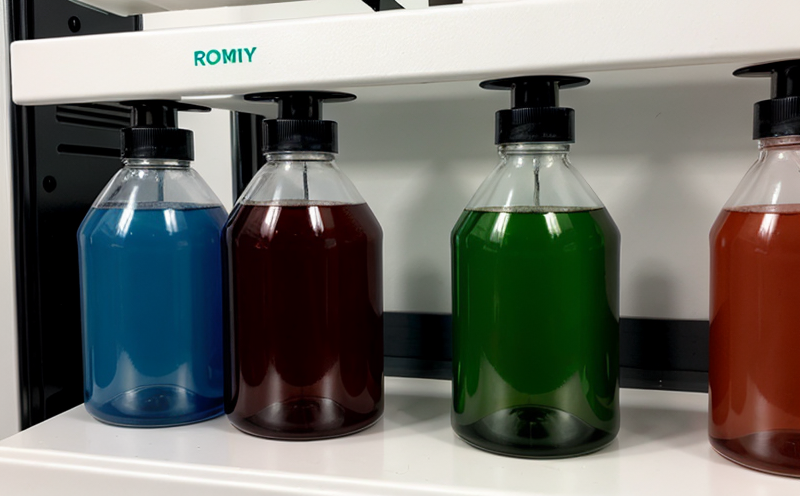ISO 11508 Soil Polymerization Residue Reactivity Testing
The ISO 11508 standard provides a comprehensive framework for evaluating the reactivity of soil polymerization residues, which is crucial in ensuring that industrial by-products are environmentally safe and do not pose risks to human health or ecosystems. This testing method assesses whether these residues react with water under specified conditions, thereby predicting their potential to form potentially harmful compounds.
The process involves several critical steps aimed at accurately measuring the reactivity of soil polymers. Specimens are prepared according to ISO 11508 guidelines, ensuring that they closely mimic real-world conditions. The testing apparatus includes precise scales and volumetric flasks, which play a vital role in maintaining accuracy.
The test method requires the preparation of a specific solution containing the soil polymerization residues along with water under controlled temperature and agitation. This mixture is then incubated for a set period before being analyzed to determine the extent of any chemical reactions that have occurred. The acceptance criteria are stringent, ensuring that only safe products pass this rigorous evaluation.
Understanding the reactivity of soil polymerization residues is essential in various sectors such as construction materials manufacturing and industrial waste management. This testing method helps prevent contamination of natural environments by identifying potentially hazardous compounds early on in the production process.
The ISO 11508 standard is widely recognized for its precision and reliability, making it an indispensable tool for industries dealing with complex chemical substances. By adhering to these standards, companies can ensure compliance with international regulations while also contributing positively towards environmental sustainability goals.
Industry Applications
| Sector | Application Specificity |
|---|---|
| Construction Materials Manufacturing | Evaluating the safety of additives used in concrete and asphalt formulations. |
| Industrial Waste Management | Determining the environmental impact of waste materials before disposal or reuse. |
| Product Type | Application Specificity |
|---|---|
| Construction Additives | Analyzing the reactivity of additives intended for improving durability and strength. |
| Industrial Waste By-Products | Evaluating the potential hazards associated with waste materials before they are repurposed or discarded. |
Quality and Reliability Assurance
The ISO 11508 standard ensures high levels of accuracy and reliability in soil polymerization residue reactivity testing. Compliance with this international standard guarantees that all tests are conducted under consistent conditions, leading to reproducible results across different laboratories.
Our laboratory adheres strictly to the procedures outlined in ISO 11508, ensuring that every step of the process is meticulously followed. This commitment to quality control not only enhances trustworthiness but also helps maintain consistency and integrity throughout our testing services.
In addition to standard compliance, we employ advanced analytical techniques supported by experienced scientists who understand both theoretical principles and practical applications. Our state-of-the-art facilities equipped with the latest instrumentation further contribute to maintaining the highest standards of accuracy and precision.
By leveraging these resources and expertise, our clients can have confidence in receiving reliable test results that meet international quality assurance requirements. This commitment to excellence ensures that our customers receive accurate information they need for decision-making purposes related to their products or processes involving soil polymerization residues.
Environmental and Sustainability Contributions
The ISO 11508 standard plays a pivotal role in promoting environmental sustainability by facilitating the safe handling of industrial by-products. By accurately assessing the reactivity of soil polymerization residues, this testing method helps prevent contamination of natural environments.
Our laboratory’s rigorous adherence to ISO 11508 standards ensures that no hazardous compounds are released into ecosystems during product development or waste management processes. This proactive approach contributes significantly towards reducing environmental impacts associated with industrial activities.
The insights gained from these tests enable manufacturers and waste managers to make informed decisions about the use of certain materials, ultimately leading to more sustainable practices within their industries. Through this service offering, we actively support global efforts aimed at preserving natural resources while fostering economic growth through responsible resource utilization.





